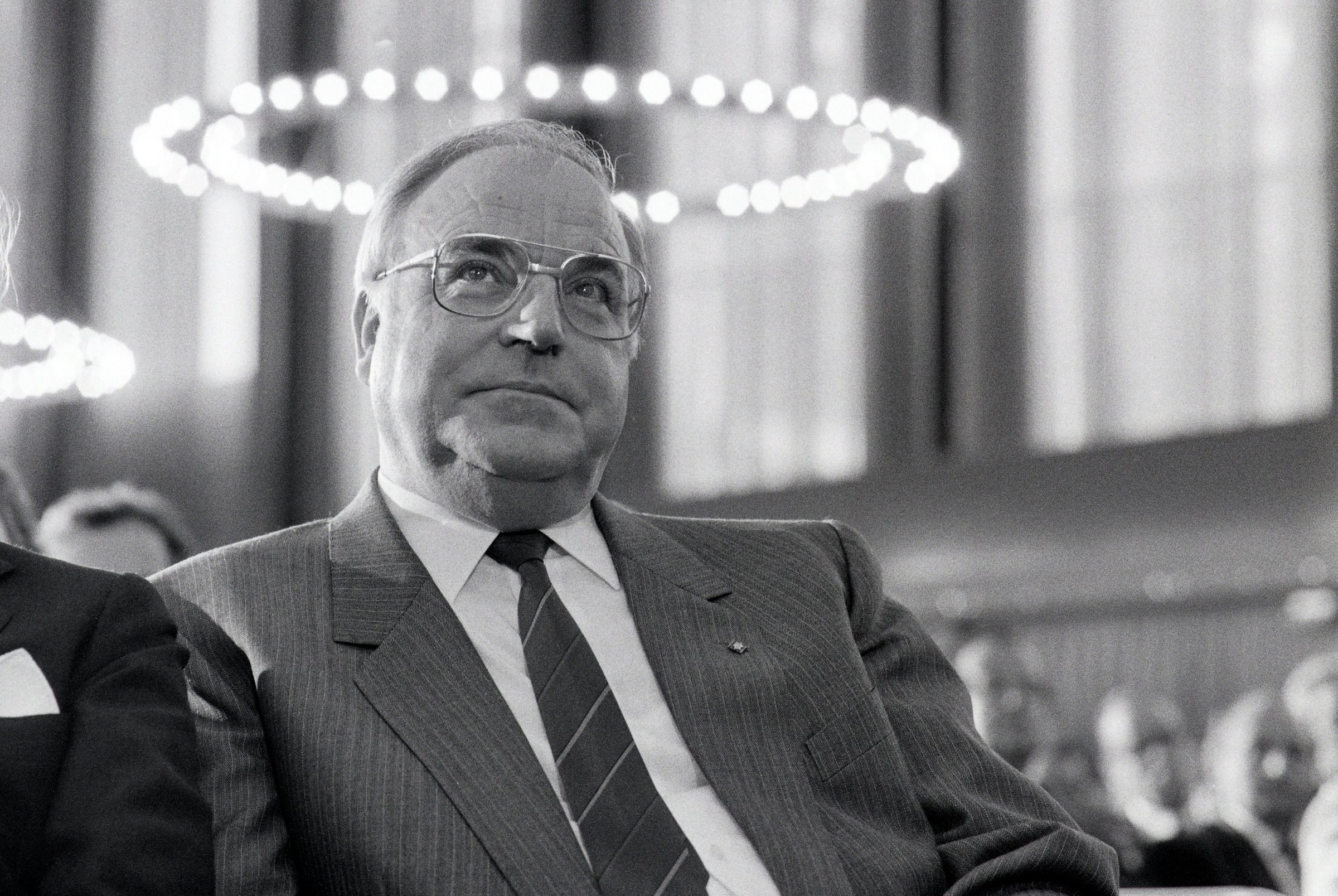
Helmut Kohl, the former German chancellor who died on June 16 at the age of 87, was a driving force behind the events that shaped the history of modern Europe. The fall of the Berlin Wall, the end of the Cold War, the reunification of East and West Germany, and the formation of a common European currency, the euro, all took place during his tenure from 1982 to 1998.
But the events that shaped Kohl’s vision for Europe took place during World War II. Having experienced the intense Allied bombing of his hometown of Ludwigshafen, he understood that integration was the only way to keep Europe at peace. Despite fierce resistance from many of his peers, Kohl championed the idea of an “ever closer union” of European states–with Germany as its political and economic backbone.
It pained him during the final years of his life to watch that idea pushed aside as the European Union lurched from one crisis to another, starting with the European debt crisis and leading to the British vote last year to leave the E.U. But the message he offered did not change: he wanted Europeans to stick together and heed the bloody lessons of their history. That is the message for which he will be remembered.
–SIMON SHUSTER
More Must-Reads From TIME
- The 100 Most Influential People of 2024
- The Revolution of Yulia Navalnaya
- 6 Compliments That Land Every Time
- What's the Deal With the Bitcoin Halving?
- If You're Dating Right Now , You're Brave: Column
- The AI That Could Heal a Divided Internet
- Fallout Is a Brilliant Model for the Future of Video Game Adaptations
- Want Weekly Recs on What to Watch, Read, and More? Sign Up for Worth Your Time
Contact us at letters@time.com